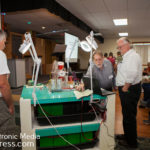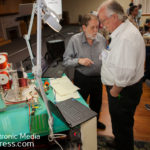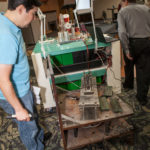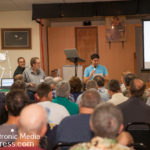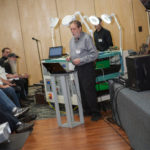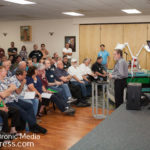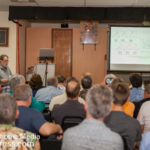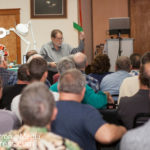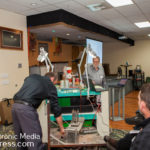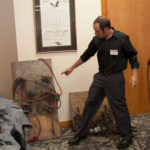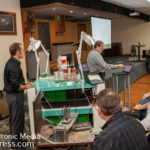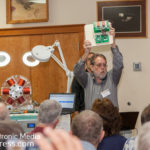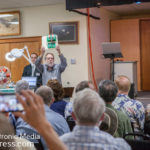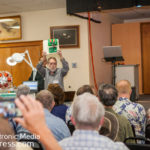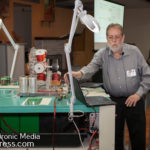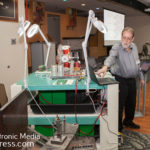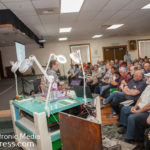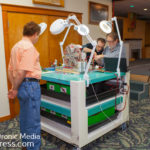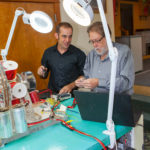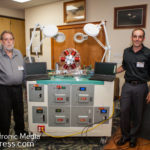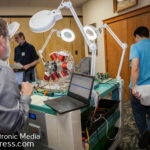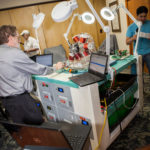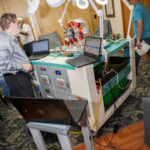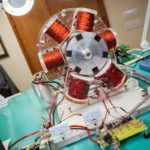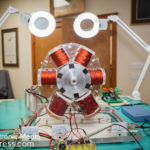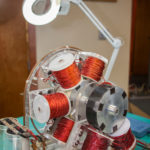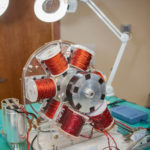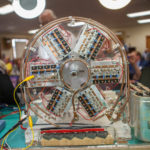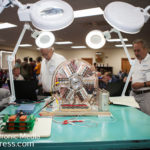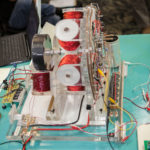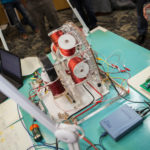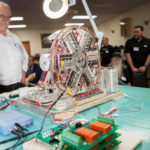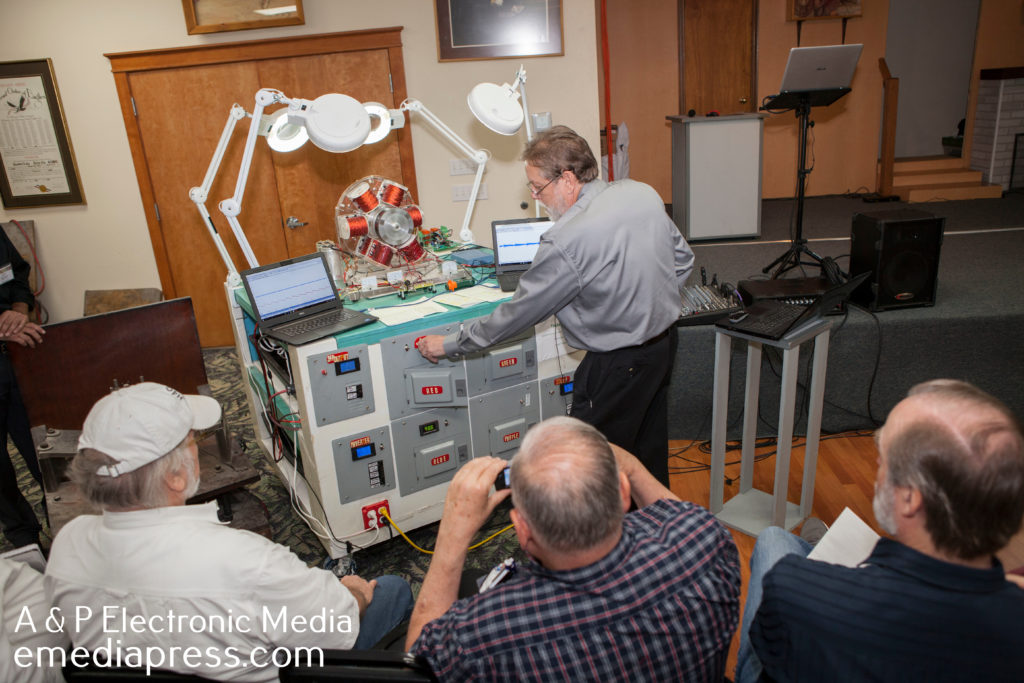
At last year’s conference, Peter Lindemann demonstrated a Bedini SSG energizer that produced a lot of mechanical work all weekend and the batteries stayed charged up!
It worked beautifully and was done with an automated circuit that rotates the batteries in a certain way but most people do not have the know-how to be able to build that circuit.
At this year’s conference, RS Stafford replicated this battery swapping method with circuit breaks and other common parts from his local hardware store. It’s inexpensive and very, very simple to build. This is the machine that ANYONE can make work if they just follow some simple wiring diagrams and RS’s instructions.
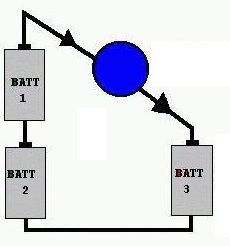 Let me explain the Split the Positive concept… lf I were to ask someone – even someone with a background in electronics or electricity if a light bulb would light up if it were placed between the positives of the batteries as shown to the left, they would say no.
Let me explain the Split the Positive concept… lf I were to ask someone – even someone with a background in electronics or electricity if a light bulb would light up if it were placed between the positives of the batteries as shown to the left, they would say no.
Let’s say they are 1.5 volt AA batteries. The two in series makes 3 volts and the other single battery is 1.5 volts by itself. Well, 3 volts – 1.5 volts in opposition means there is still a voltage potential difference of 1.5 volts between the positives. A LED bulb for example will indeed light up because potential differences are what are important in electricity and NOT polarity.
Here’s an important thing to understand – while the bulb is lit up, the current from the two batteries in series is charging up battery #3. Therefore, if battery #3 is dead, it will charge up as the bulb is lit. When it is charged, it can move to the position of #1 or #1 batteries and one of the batteries #1 or #2 can be placed into the #3 position and it will get charged up while the bulb is lit. So you can see that by constantly rotating these batteries, you actually wind up with way more load powering capability than you would get if you just ran the bulb on a single battery until it’s dead and do that for the other two batteries.
John Bedini came up with this method years ago after studying the concepts in the famous Ed Gray motor, which had a similar process, but with much higher voltages. The above example has been known as Bedini’s 3 Battery system and very few people have ever understood the profound implications of it.
Now when you combine this concept with a highly efficient Bedini Energizer where you can recover a high percentage of what goes into the system in addition to getting some extra electricity from some generator coils that have very low drag, you have the keys to be able to produce mechanical or electrical work while making up for virtually all its own losses. That means you have a simple system that keeps itself charged up and you can create the battery swapping part of the system with parts from your local hardware store!
Our power grid is doomed to crash and you will be at a very strong advantage with what RS is teaching you here in this presentation.
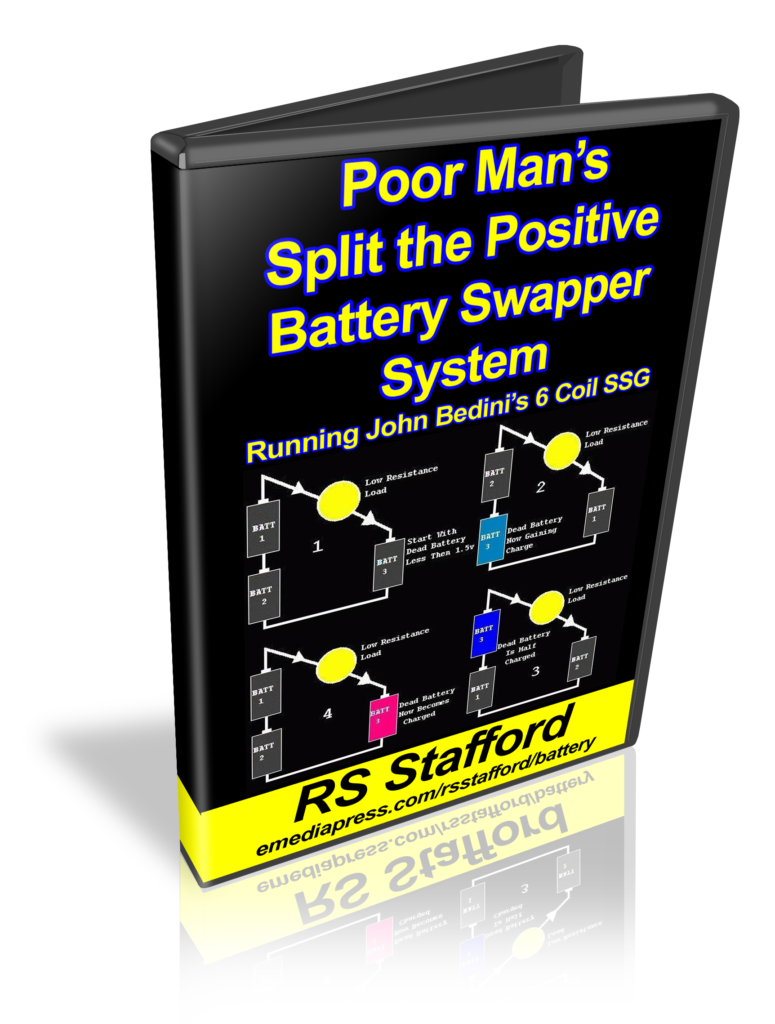
Learn more here: https://emediapress.com/shop/poor-mans-split-positive-battery-swapper-system/

